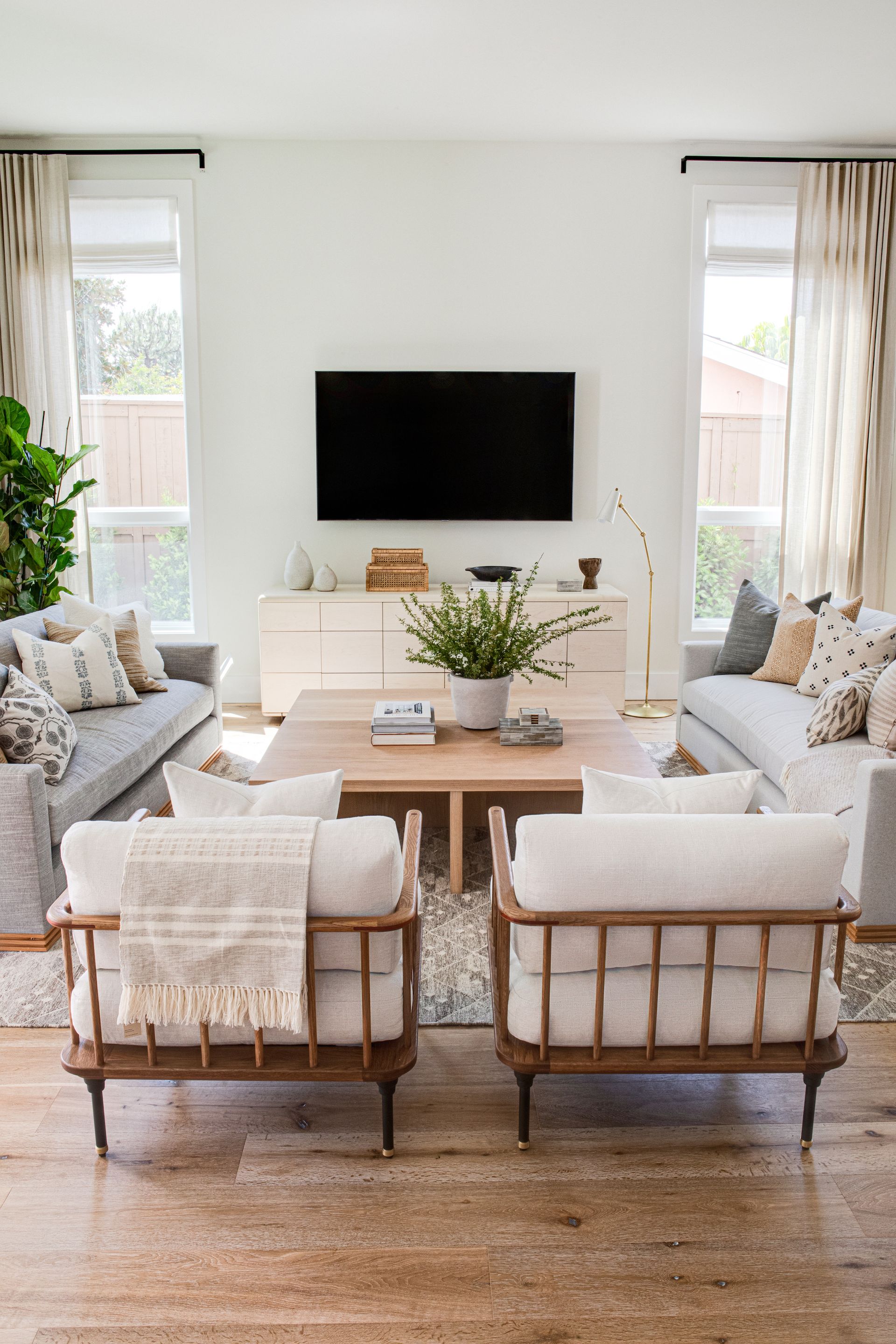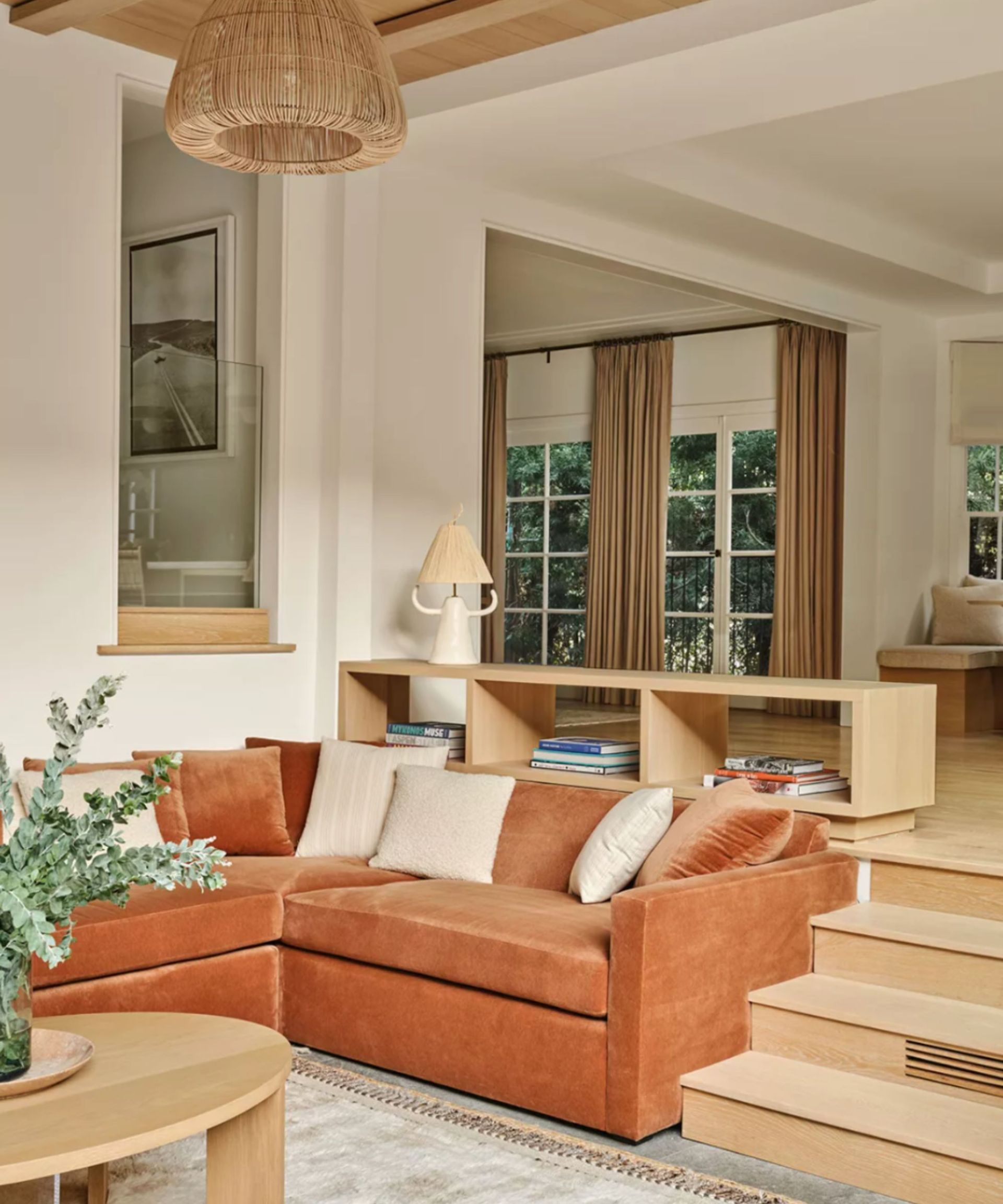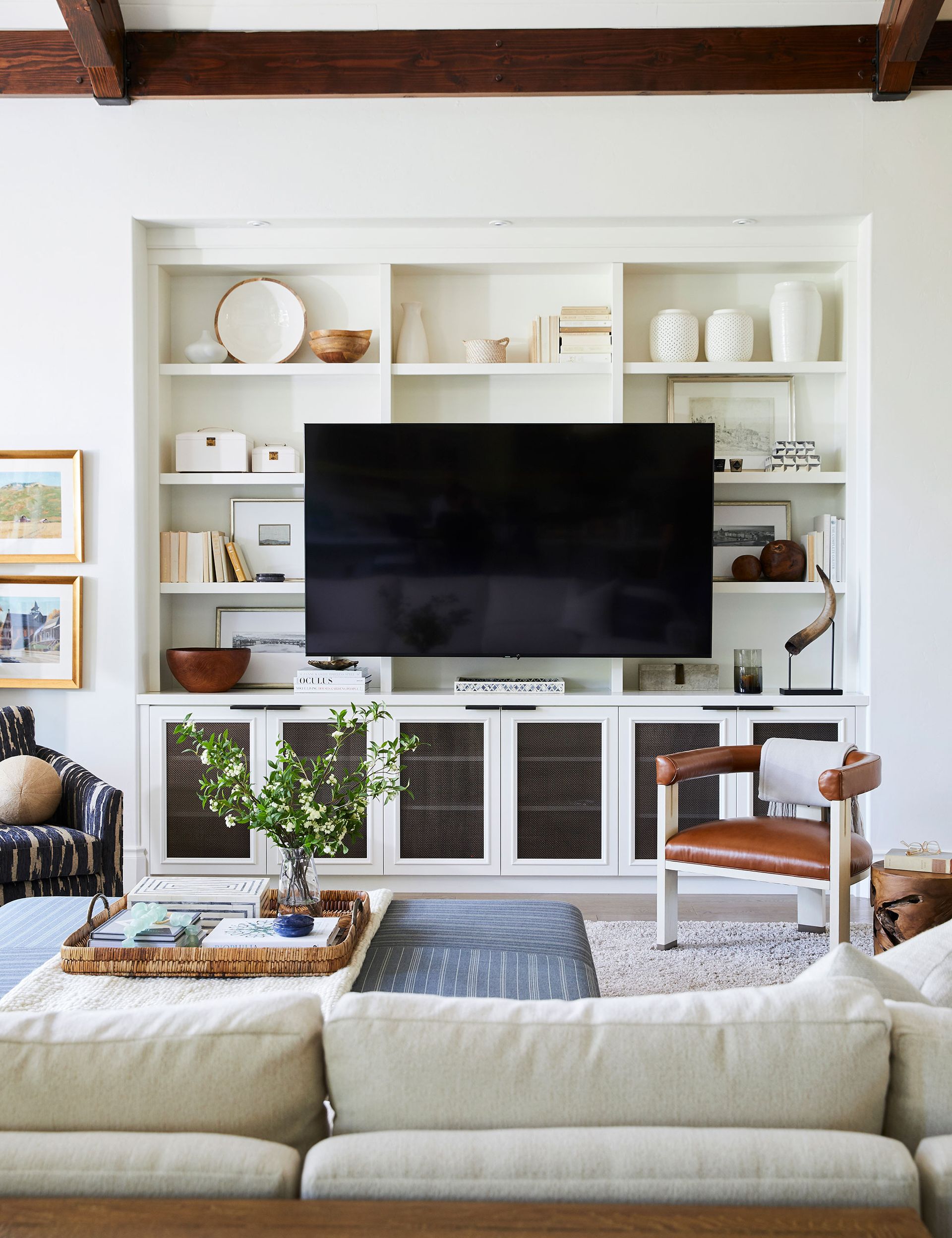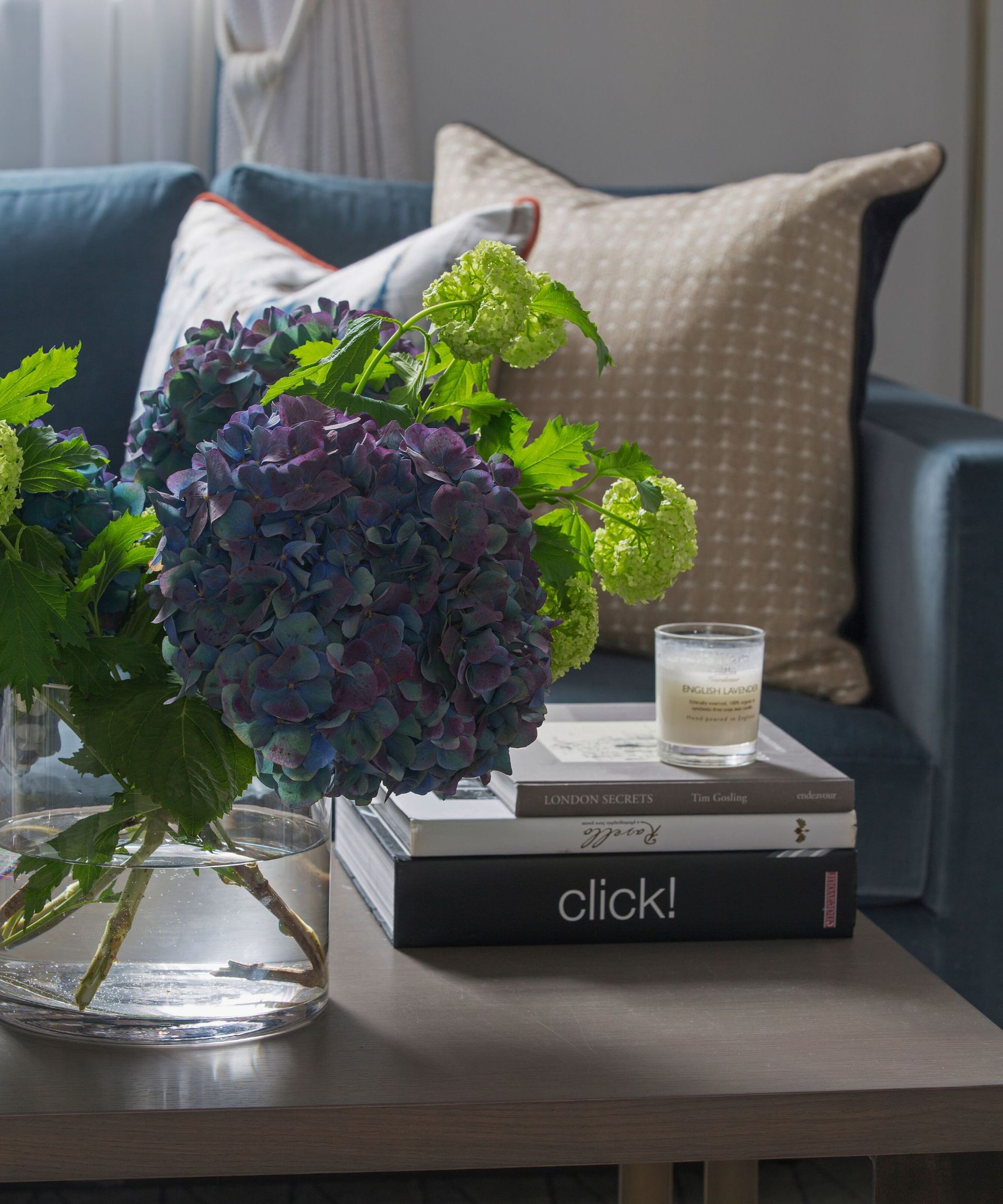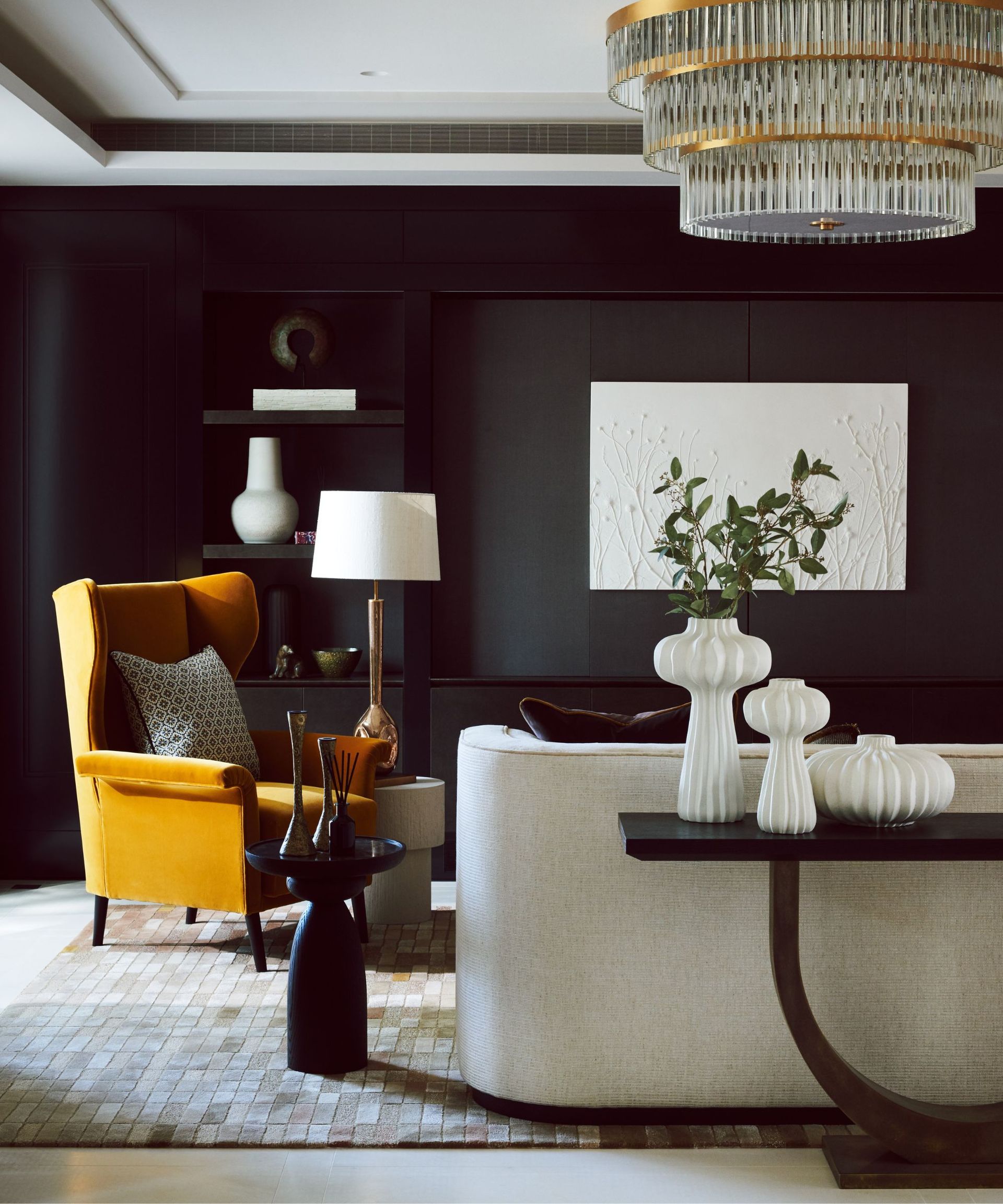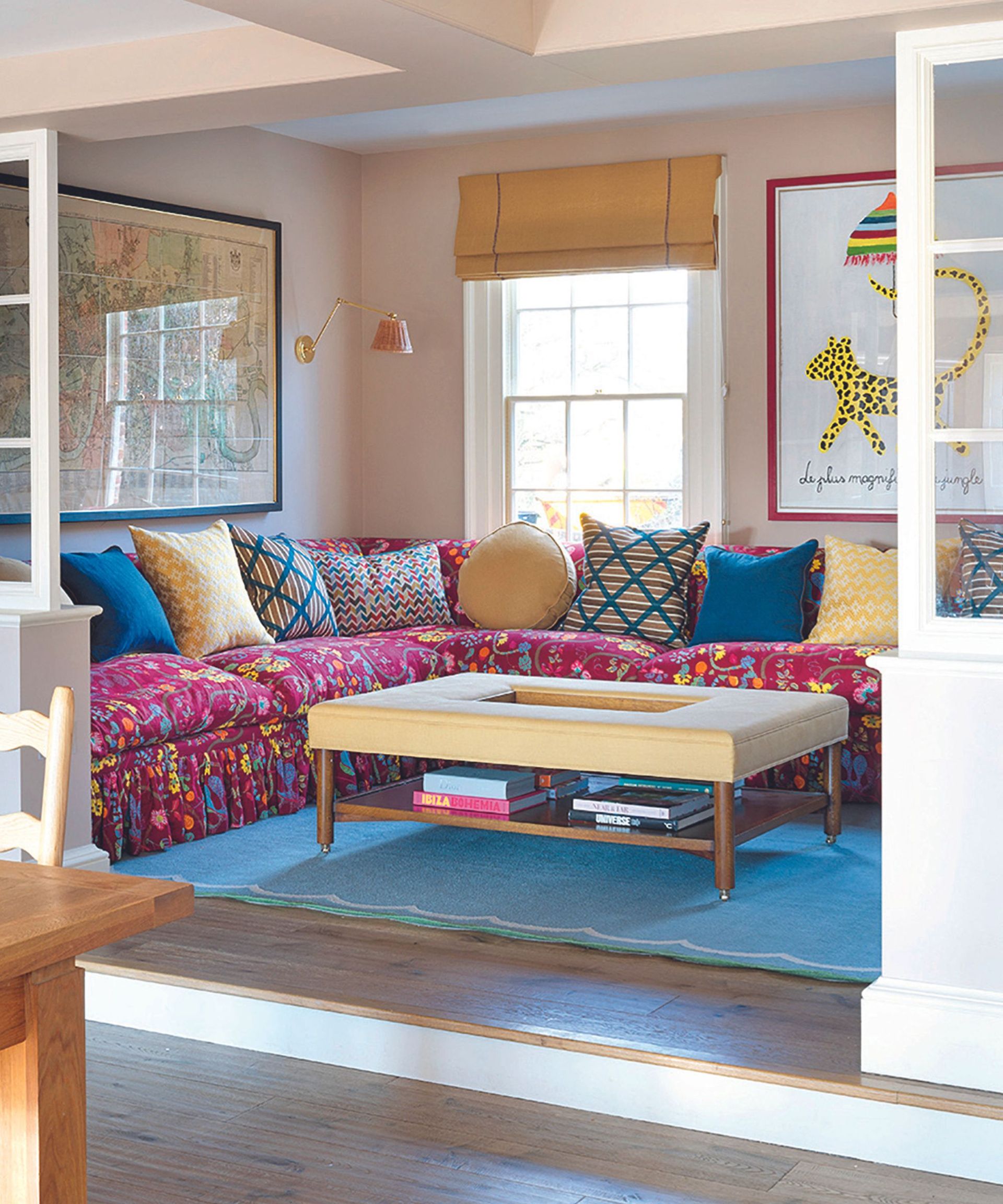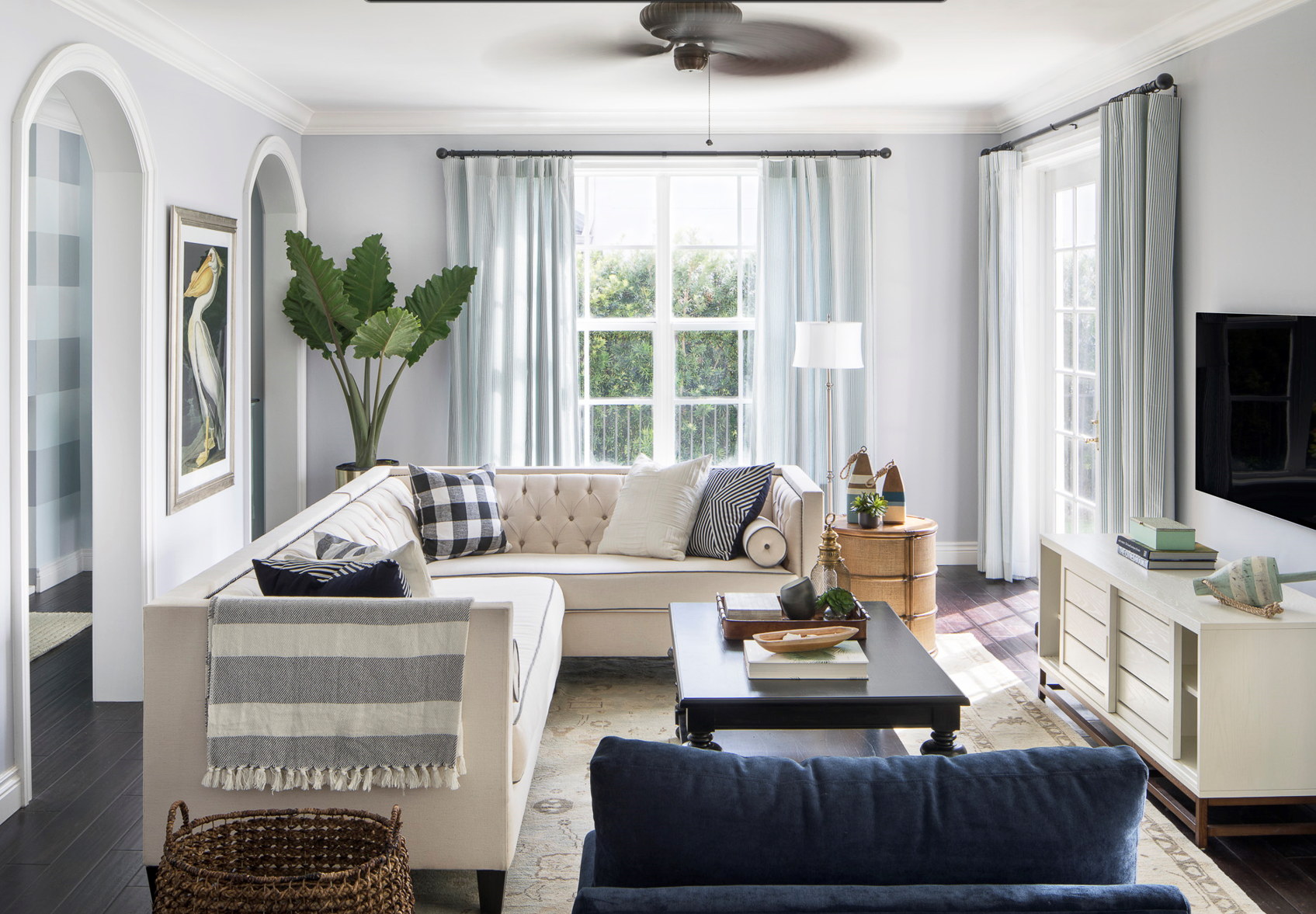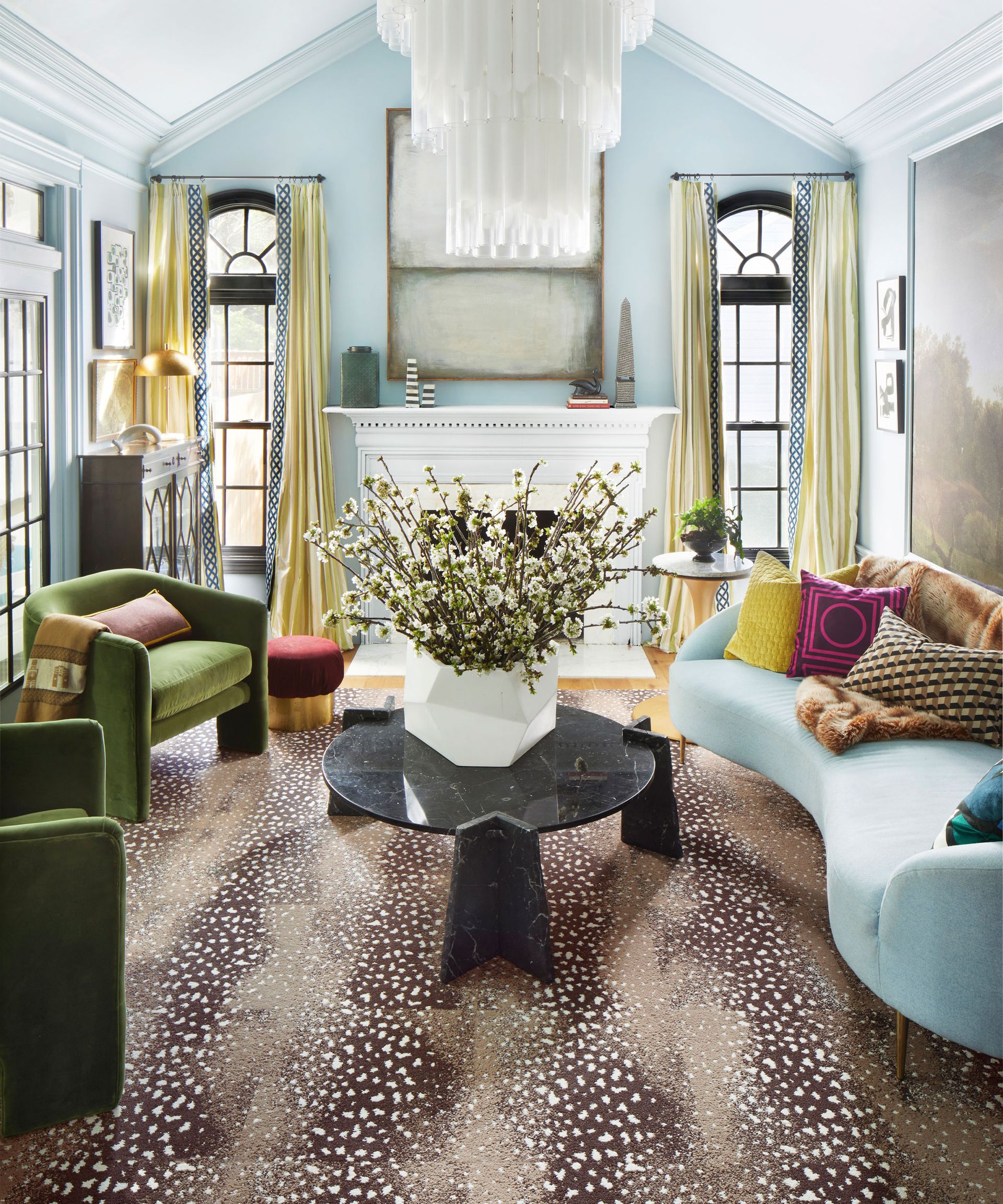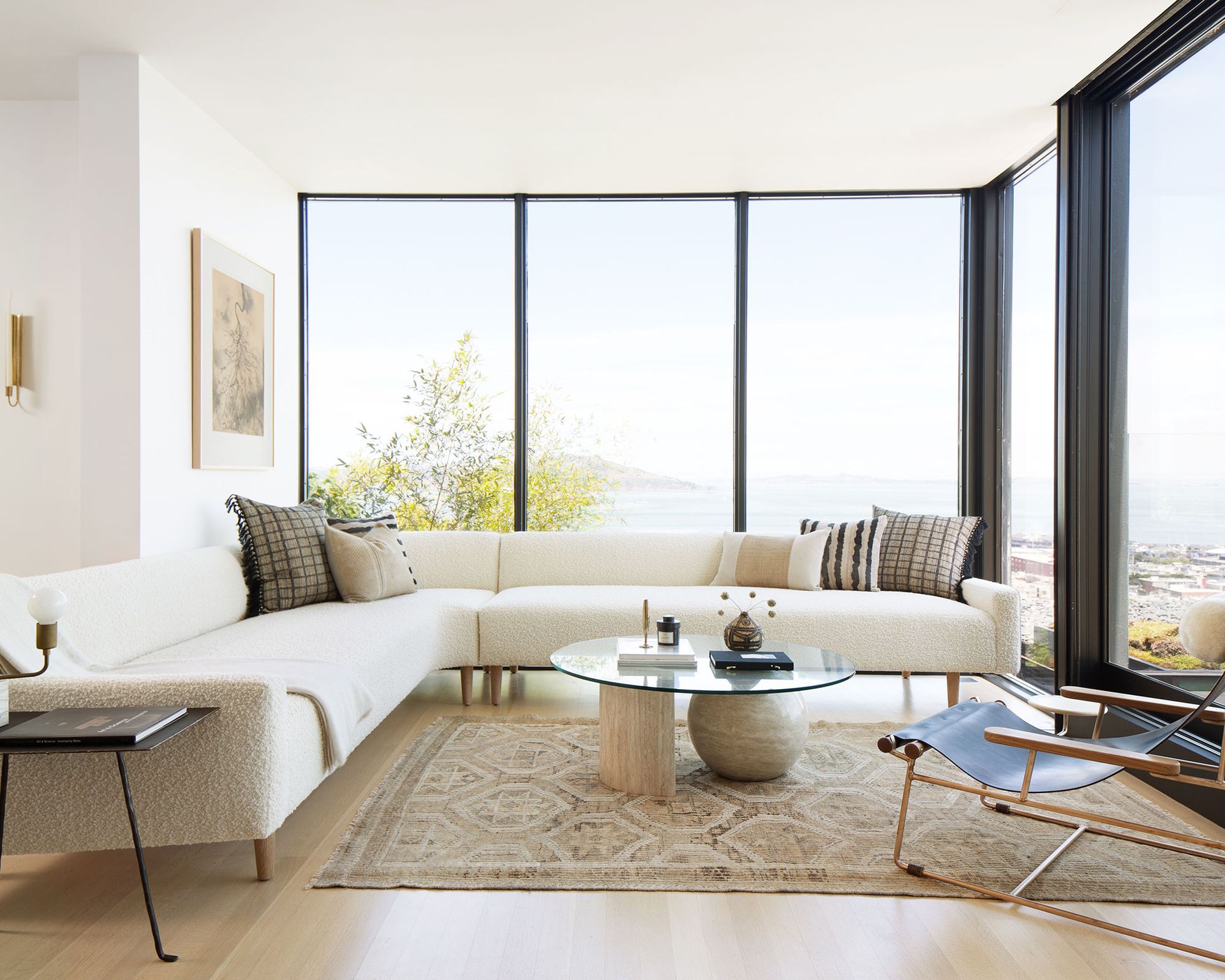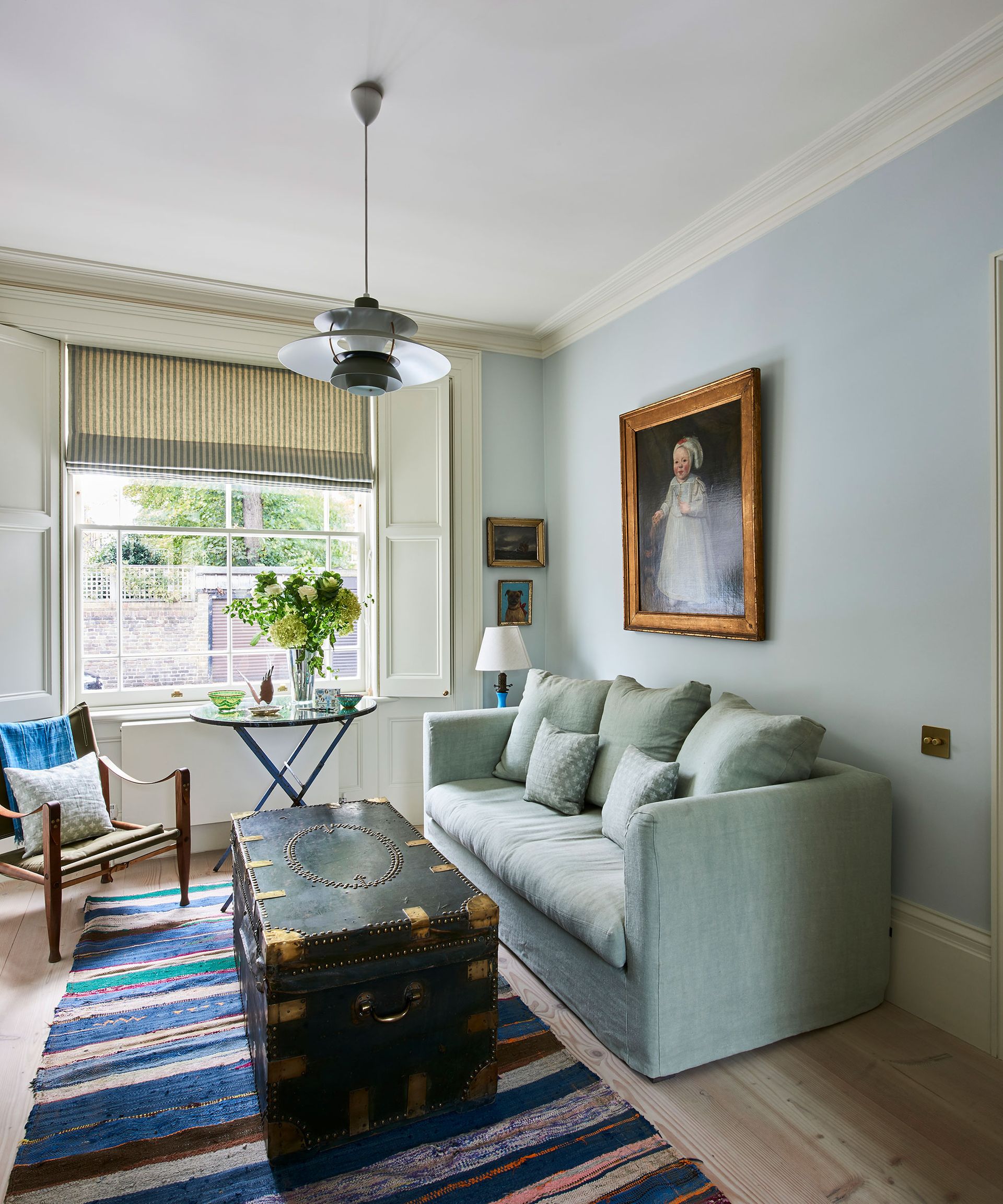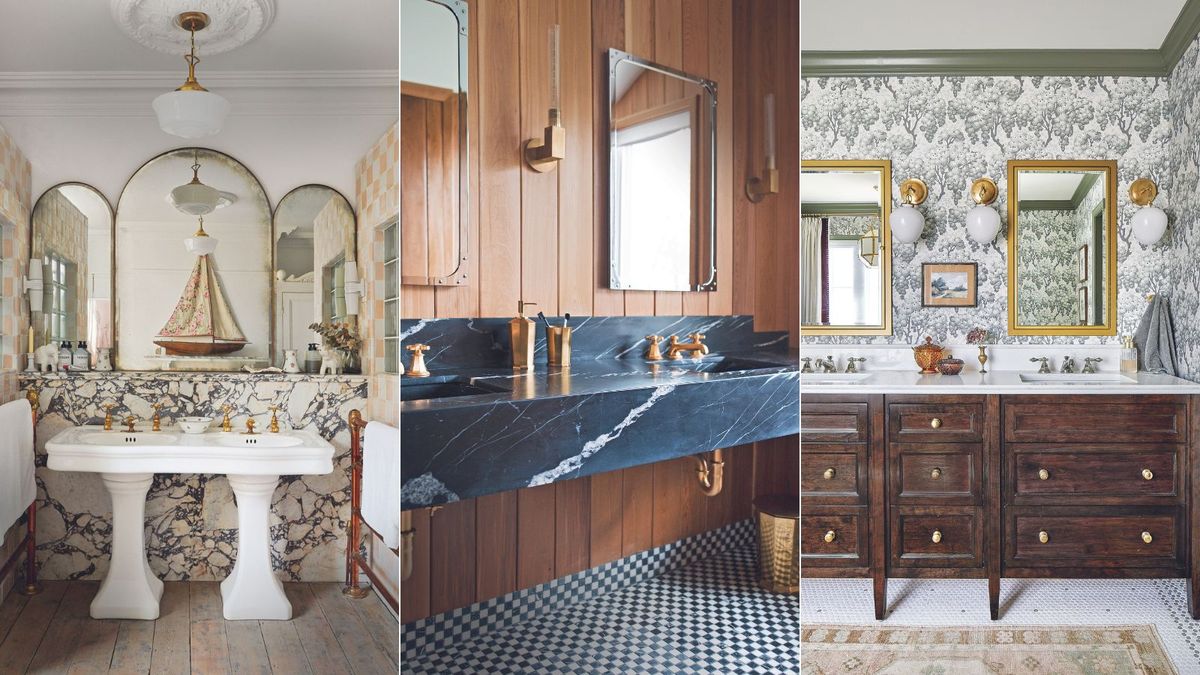It can be challenging to make a small living room look less cluttered. The room needs the furniture that makes it comfortable and functional as well as the decorative pieces that make it stylish and individual – all of which can add up to make it feel less than spacious.
But there are tactics interior designers use that ensure the decor creates a great look without a crowded feel. Along with clever small living room organizing and great small living room storage, they’re the solution to a cluttered room.
We’ve asked the experts to share their advice here so creating a room that’s clutter-free and beautifully curated is a breeze.
How can I make a small living room look less cluttered?
Successful small living room ideas result in space that doesn’t lack essential pieces. good looks or personal touches – but there’s no denying that it is easy to fall into the trap of overfilling the room.
But whether we’re talking apartment living room ideas or those for a house with modest proportions, there are interior design strategies that ensure a living room ticks all the boxes and feels spacious. These are the tricks you should know.
1. Think scale
(Image credit: Lindye Galloway Studio + Shop/Chad Mellon)
There are two elements key to ensuring a living room doesn’t look cluttered. ‘Scale and symmetry are the driving factors in making a space feel big and easy to read,’ says Peter Spalding (opens in new tab), interior designer, co-founder and chief creative officer at Daniel House Club.
‘A small living room can easily seat as many people as a bigger one if you are careful about the size of the upholstery you select,’ he continues. ‘A lot of manufacturers have “studio” or “apartment” sofas – buy these. An even better approach is to go to your local secondhand store, buy a sofa from the 1960s, 70s, or 80s and have it reupholstered. These older pieces are much better scaled to small rooms.’
2. Reposition furniture
(Image credit: Jaqui Seerman)
Where you locate the furniture can help in avoiding a cluttered feel. ‘Pull your furniture away from the walls and float some pieces if you can,’ says interior designer Artem Kropovinsky (opens in new tab) of Arsight.
‘This creates some space and makes your room look less crowded. You can also use shelves or nightstands that are mounted on the wall to save some floor space.’
3. Direct the gaze upwards
(Image credit: Alice Lane Interior Design / Nicole Hill Gerulat Photography)
Draw attention to a small room’s height for a more spacious feel. ‘Buy some tall étagères or bookcases and fill them with books (not exclusively accessories),’ says Peter Spalding.
‘These will give your room some much-needed towering architecture and make your eyes read the entire height of the space you have. Finding these with doors on the lower 30 inches will provide storage space for things you don’t want to see.’
4. Edit accessories
(Image credit: Robert Sanderson)
Beware of an excess of decorative accessories on display in a small living room – it’s easy to overfill the space.
‘Keep your surfaces neat and free of unnecessary clutter,’ says Artem Kropovinsky. ‘A few carefully selected accessories can add character and charm to your room, but too many can make it look disorderly and chaotic. Store your items in baskets, drawers, or cabinets that match your decor.’
5. Swap two tables for one
(Image credit: Charu Gandhi/Elicyon)
Clever furniture selection can swerve the trap of an overloaded floor plan. ‘If the sofa has to float in the middle of the room, find a narrow sofa back table and put a pair of lamps on it so you don’t need lamps on side tables,’ recommends interior designer Peter Spalding.
6. Size up
(Image credit: Salvesen Graham)
It may come as a surprise, but you need to size up some elements of a small living room for the avoidance of clutter.
‘If small rooms need smaller-scaled furniture, often they benefit from really big art or a mirror,’ explains Peter Spalding. ‘I like one singular piece, about 5 feet wide and nearly as tall, hung only 6 inches above the sofa back. This will tightly anchor your furniture grouping in the room and introduce a sense of order. If art is too small, it seems to float on the wall, making no strategic contribution to the scheme.’
And while gallery wall ideas are an excellent way to display favorite images or objects in many spaces, they aren’t a great option for small living rooms. ‘One oversized art piece versus a gallery wall lets the space feel less cluttered visually,’ explains interior designer Aileen Warren (opens in new tab) of Jackson Warren Interiors.
7. Plan the window treatment
(Image credit: Project by Corine Maggio of CM Natural Designs / photograph Jessica Glynn)
An uncluttered look requires the room to feel bigger in every dimension so focus on how high curtains should be hung. The way to ensure a small living room doesn’t look stuffed? ‘Hang your curtains as close to the ceiling as you can,’ says interior designer Peter Spalding. ‘The more connection points you can make between floor and ceiling, the taller your room will become.’
8. Choose the right rug
(Image credit: FLOR)
Be mindful of the dimensions of a rug relative to the dimensions of the room for a spacious effect.
‘The right size rug is very important,’ says Aileen Warren. ‘Go big on the rug –everything should sit comfortably on the rug. A rug that’s too small won’t unify the pieces.’
Peter Spalding agrees and recommends, ‘Do your best to find a rug that fills the whole room, coming within about a foot of the walls.’
9. Eliminate visual clutter
(Image credit: JDP Interiors / Bess Friday)
What clutters a small living room can be over-large or too much furniture and too many accessories, but don’t neglect the aspect of visual clutter, which will also make it feel hectic.
‘To reduce visual clutter, it’s important to blend design elements and find balance in colors, patterns, and textures,’ says Jennifer Matthews (opens in new tab), co-founder and CCO at Tempaper & Co.
‘While you can still incorporate bold colors into a small space if that’s your style, the room will have a better flow with design elements that complement each other. Adding too many outliers that stray from the overall color scheme will pull your eyes in different directions and make the room feel cluttered.’
10. Be selective with storage furniture
(Image credit: Jonathan Gooch/Future PLC)
Places to tidy away all that needs to be kept in a small living room are, of course, crucial, but be mindful about their aesthetic.
‘Always be on the lookout for things that have a lot of storage, but are not designed exclusively with storage in mind,’ advises interior designer Peter Spalding. ‘So many storage-forward pieces recall college dorm life and diminish the impact your space will have. But a beautifully refurbished trunk for a coffee table feels very nice and holds a lot of whatever you need to store.’
FAQs
What makes a living room look cluttered?
A living room can look cluttered because the furniture isn’t scaled to the room, there is too much of it, or there is an excess of decorative accessories on surfaces.
‘Large furniture, such as sofas, tables, and desks, are often needed in a living room, but can make the room feel much tighter and smaller than it actually is,’ says Challie Stillman of Resource Furniture (opens in new tab). ‘With multi-purpose furniture pieces, you can transform any room and have the furniture act as an extension of a space’s architecture.’
Edit accessories for display, too, so they don’t fill surfaces. Changing them around and moving items in and out of storage somewhere else in your home allows you to continue to enjoy everything you’ve collected without cluttering the room by displaying it all at once.
How do I make my living room cozy but not cluttered?
To make a living room cozy but not cluttered consider all the elements of the interior including color, the materials palette, and lighting, which can all contribute to creating a space that’s snug and comfortable without compromising the sense of space.
Cozy living room ideas can include light wall colors that visually stretch the space, but needn’t create a cool atmosphere. To keep the space comfy choose those with warm undertones or add warm color in pieces such as sofa pillows, a rug or artwork.
Choose materials such as wood, rattan, wool and faux fur: none of which will make the room feel cluttered but will make it visually and texturally appealing and cozy.
Scale furniture like sofas and armchairs to the space, but choose designs you can sink into (if you don’t mind plumping the cushions) for a cozy feel, or dress couches with pillows to make them super inviting.
Layer lighting, too, using a selection of sources to create warmth and intimacy.
